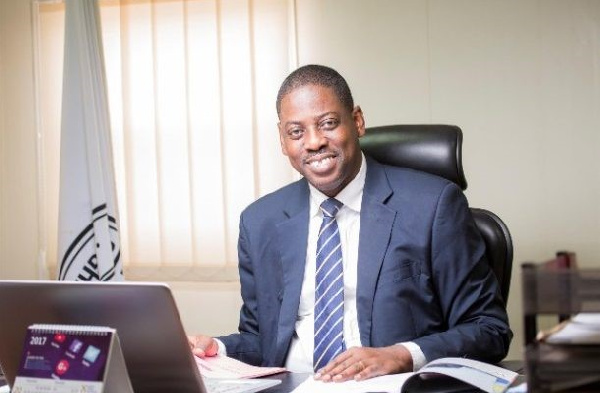The Securities and Exchange Commission (SEC) has launched its first Capital Market Master Plan (CMMP) to guide the development of a robust capital market in the country over the next 10 years.
The CMMP was developed by a working group drawn from key stakeholders in the financial sector and is expected to make the capital market attractive to raise enough ‘patient capital’ to finance long-term growth.
It will, among other things, guide the SEC to develop an efficient, fair and transparent securities market in which investors and the integrity of the market are protected.
The Minister of Finance, Mr Ken Ofori-Atta, who launched the CMMP in Accra yesterday, said improving access to long-term finance would be a key enabler for achieving the objectives of the government’s ‘GH¢100 billion Ghana Cares/Obatanpa programme’, which is aimed at stabilising the economy to trigger revitalisation and transformation.
He, therefore, pledged the government’s commitment to developing Ghana’s capital market to support its crucial programmes and make it a hugely attractive financial hub for both domestic and international investors.
Mr Ofori-Atta noted that the capital market was an essential driver for economic growth but the evolution of Ghana’s financial sector had, unfortunately, not placed the market industry at the heart of financial sector development for years.
“Essentially, the capital market has been developing over the years without a dedicated comprehensive coordinated plan and with limited effort on the part of key stakeholders in the industry,” he said.
Investor support
The Director-General of the SEC, Rev. Daniel Ogbarmey Tetteh, under whose leadership the plan was developed, said the launch of the CMMP would be beneficial to different stakeholders in and outside the financial sector.
For example, he said, it would enable the creation of jobs, as businesses would be able to raise capital and also help business owners expand their businesses.
“It will help create a viable avenue for investors to deploy surplus funds,” he said.
Rev. Tetteh said the CMMP would be critical to the growth aspirations of the country, the 10-year CMMP would be the engine to facilitate that important transformation through the key initiatives spelt out in the document.
He explained that the framework of the CMMP was designed to provide strategic direction and a clear road map towards fulfilling the government’s vision of positioning the country as the regional hub for financial services.
“We believe that this plan will complement the government’s efforts at building a comprehensive ecosystem to make Ghana the preferred destination for a regionally focused financial services hub,” he said.
Need for market
According to him, the need for a plan to develop the capital market in the country was rooted in three main public policy objectives.
He said to fund the country’s development priorities, the government required efficient public borrowing through a deep capital market and a robust sector.
“These factors also underpin economic growth because numerous studies conducted on developed markets show that broader and deeper capital markets will likely lead to better investment, more growth, increased employment and higher standards of living,” he said.
He said capital markets were better suited for funding long-term projects and raising equity capital for building businesses and creating wealth.
Secondly, capital markets would help create opportunities for ordinary citizens who would otherwise be denied same in the absence of a capital market, he added.
He said the capital market also served to manage systemic risk through the provision of market information and enabling investors to choose asset classes based on their risk preference.
State of capital market
The capital market in Ghana has made significant strides in its development over the past two decades, but it is still small, relative to other emerging markets.
It is dominated by the government’s domestic debt, with total value outstanding at GH₵115 billion as of December 2019, representing 33 per cent of GDP, from just GH₵19.4 billion in 2015, which was 11 per cent of GDP.
However, total market capitalisation remained relatively flat over the past five years, according to the SEC.
SEC timelines
The SEC is established by the Securities Industry Act, 2016 (Act 929), with the object to regulate and promote the growth and development of an efficient, fair and transparent securities market in which investors and the integrity of the market are protected.
The commission was established in 1993, in accordance with the SIL 1993, PNDCL 333. It was called the Securities Regulatory Commission under the SIL, PNDCL 333.
It operated under the supervision of the Governor, Bank of Ghana (BoG).
The BoG set up a Capital Market Desk to regulate the Industry.
In September 1998, the Securities Regulatory Commission was formally set up as an independent regulator of the capital market in Ghana.
In 2000, it became the Securities and Exchange Commission by an act of Parliament, the Securities Industry Amendment Act, 2000(Act 590).
In 2016, a new act, the Securities Industry Act, 2016 (Act 929), was enacted to expand the powers of the SEC. That new law replaced the Securities Industry Law, 1993 (PNDCL 333).





